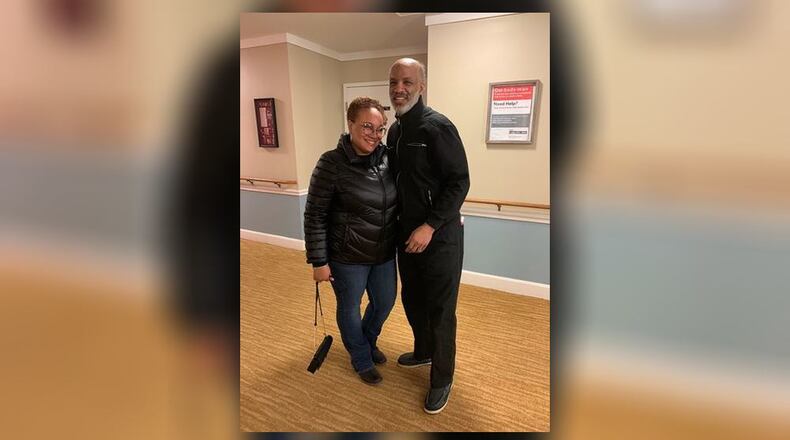When Keondra Williams went to her first support group meeting for Alzheimer’s caregivers in Cobb County, she felt more alone than ever.
All the caregivers in the meeting where older white women. Williams, who was in her early 40s at the time, was Black and a mother of one then-teen and two adult children.
“I didn’t feel that my story would be heard,” said Williams, two years later. “I didn’t feel like they could relate.”
When she voiced her concerns, she was told that there may be more African Americans in caregiver groups in places like Decatur.
Williams’ experience illustrates some of the issues advocates say Black, Latino, Asian and Native American people may face as they deal with the debilitating effects of Alzheimer’s on patients and their caregivers.
The racial and ethnic disparities among non-white communities was examined in a special report included in the new 2021 Alzheimer’s Disease Facts and Figures summary, which was released Tuesday by the Alzheimer’s Association.
The special report, “Race, Ethnicity and Alzheimer’s in America,” found that racial and ethnic disparities, “such as those observed during the pandemic, extend to dementia care. Stigma, cultural differences, awareness and understanding, and the ability to obtain a diagnosis, manage the disease, and access care and support services for dementia vary widely depending on race, ethnicity, geography and socioeconomic status.”
That includes representation in clinical trials.
Williams’s father, who worked in real estate and who previously lived in Delaware, was diagnosed with Alzheimer’s disease in 2011. At 65, he now lives in a memory care facility in Atlanta.
Her father, Duvall Watson Sr., and her mother were cleaning their boat in Maryland when he suffered a fall. Doctors said he had a concussion. Shortly thereafter, though, his family noticed cognitive issues out of the norm. He was tested and eventually received a diagnosis of Alzheimer’s.
“Our culture just doesn’t want to accept this,” she said. “Even now family are not accepting of what’s going on with him. It’s just an education thing.”
Among the biggest issues non-white people face is the access to health care and the comfort level when talking about symptoms that could be linked to Alzheimer’s and dementia, said Linda Davidson, executive director of the Georgia chapter of the Alzheimer’s Association.
“More than a third of Black Americans believe it’s harder to get excellent care for this and other dementias,” she said. “Here we are in 2021 and we have people who feel they are not getting the same care as everyone else.”
When it comes to caregiving, the news is equally troubling.
The differences include the availability of support services, time spent on caregiving, cultural perceptions of caregiving, the disease and the mental health of the caregiver.
“We have to elevate the conversation,” said Davidson, who said the national association recently began a partnership with the African Methodist Episcopal Church around education, support services and referral programs.
She said part of the work is battling the stigma around cognitive decline, access to health care and having more Black, Latino and Native American medical professionals that can make patients and their families more comfortable.
“We know we need to do better with diversity in everything we do,” she said. “Our support groups should mirror the population. Our board should mirror the population.”
Fayron Epps is addressing some of those concerns.
Epps, an assistant professor of nursing at Emory University, is the founder of the Alter Program, which works with African American churches to develop dementia-friendly programs.
She said for some there is a mistrust about the health care system, but also issues related to accessing resources and service.
“Many minority and ethnic groups feel that they face discrimination when seeking care,” she said, “which makes their caregiving journey challenging.”
The program helps “get rid of that silence that no one wants to talk about in the Black community.”
Alzheimer’s Disease Facts and Figures summary findings:
- In Georgia, the number of people 65 and older with Alzheimer’s was 150,000 in 2020 and projected to reach 190,000 in 2025, an increase of 26.7%.
- The number of caregivers in Georgia last year was 334,000, of whom 54% themselves had chronic health conditions and 21.6 % suffered from depression.
- The total value of unpaid care of Alzheimer’s patients in Georgia was $9.198 billion in 2020.
Read the full Alzheimer’s Association report at www.alz.org.
About the Author
Keep Reading
The Latest
Featured



